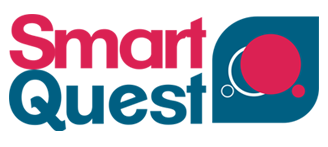
 Author: Kushani Bandara.
Author: Kushani Bandara.
In today’s world, we are bombarded with messages about what we can and cannot achieve. Societal expectations, past failures, and even self-doubt can create a web of limiting beliefs that restrict our potential. However, as I recently came across an article by Catherine Plano, our beliefs have the power to either limit us or empower us. This resonated deeply with me, particularly in light of my own journey of self-discovery through NLP (Neuro-Linguistic Programming).
The article delves into the concept of core beliefs, shaped by our experiences and shaping our perception of ourselves and the world. It highlights how limiting beliefs can hinder our progress, acting as invisible walls that prevent us from reaching our full potential. Recognizing these beliefs is the first step towards overcoming them. The article suggests questioning these limiting beliefs and replacing them with empowering ones. This struck a chord with me, as it mirrored the core principle of NLP: that by changing our internal language and thought patterns, we can change our external reality.
My foray into NLP began with a desire to improve my communication skills. However, I soon realized that NLP offered a much broader range of benefits. Through techniques like reframing and anchoring, I learned to challenge my limiting beliefs and replace them with empowering ones. For instance, I used to believe that “I am not good at public speaking.” This belief stemmed from a negative experience in school. However, through NLP, I reframed this belief into “Public speaking is an opportunity for me to share my knowledge and connect with others.” This shift in perspective not only reduced my anxiety but also allowed me to approach presentations with confidence.
NLP also equipped me with tools to build self-belief. By anchoring positive emotions to specific cues, I could cultivate a more resourceful state of mind. For example, I would associate a feeling of accomplishment with a particular hand gesture. Whenever I felt self-doubt creeping in, I would perform this gesture, reminding myself of my past successes and boosting my confidence.
The impact of NLP on my life has been profound. By shattering the walls of limiting beliefs, I have opened myself up to a world of possibilities. I am now more confident, resourceful, and resilient. I approach challenges with a growth mindset, believing that I can learn and improve from every experience.
This newfound sense of empowerment extends to all aspects of my life. In my professional career, I am no longer afraid to take on new challenges or speak up for myself. In my personal life, I am more open to trying new things and stepping outside my comfort zone.
Catherine Plano’s article on limiting beliefs provided a valuable framework for understanding the power of our internal narrative. By recognizing the existence of limiting beliefs and actively replacing them with empowering ones, we can unlock our full potential. The journey of overcoming limiting beliefs is a continuous one. As I move forward, I will continue to challenge my limiting beliefs and cultivate empowering ones, forever grateful for the transformative power of NLP.


